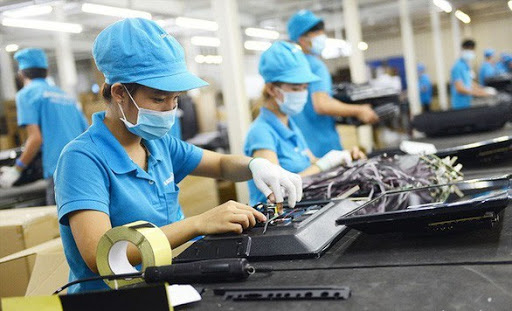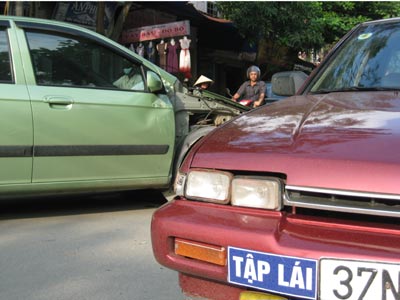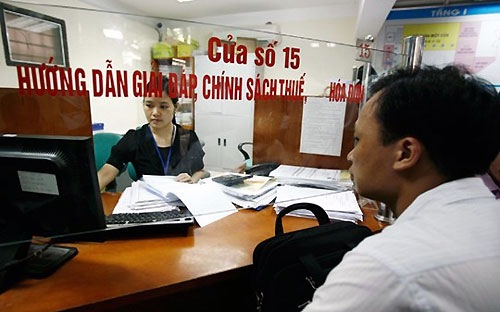On September 11, 2020, the Government of Vietnam issued Resolution 129/NQ-CP 2020 regulating the regular August 2020 meeting of the Government of Vietnam. Important policies to support businesses affected by Covid-19 were a significant topic mentioned in this Resolution.

Important policies to support businesses affected by Covid-19 (Illustrative image)
In Resolution 129/NQ-CP, the Government of Vietnam has acknowledged that our country's economy continues to face many difficulties, influenced by both internal and external risks and challenges. Specifically, the current state of the domestic economy is as follows:
- Business operations are encountering numerous difficulties, particularly in transportation, aviation, tourism, lodging, and food services;- The risk of unemployment, underemployment, and significant income reduction for workers is rising sharply;- The industrial production index for eight months has seen low growth;- Some sectors have seen deep reductions due to the disrupted supply chain not fully recovering and the significant decline in global demand;- There is a trend of slowing foreign investment inflows.
Recognizing these challenges, the Government of Vietnam has proposed methods and specified regulations for the competent authorities to implement these methods to support businesses with the aim of recovering and developing the economy out of the difficult phase caused by Covid-19.
The specific policies are as follows:
1. Extending the timeframe for debts to support businesses
Specifically, the State Bank of Vietnam is responsible for:
- Continuing to proactively and flexibly administer monetary policy, harmonizing it with fiscal policy and other policies to both stimulate the economy and ensure inflation control and macroeconomic stability;- Urgently completing amendments and supplements to Circular 01/2020/TT-NHNN before September 30, 2020, and related regulations to extend the timeframe for debts affected by Covid-19 to be restructured and kept in the same group of debts to match the developments of Covid-19 and continue to support businesses.
2. Proposing tax and fee policies to support businesses
The Ministry of Finance is responsible for implementing tax and fee support policies for businesses as follows:
- Continuing to review and propose tax and fee policies to support businesses facing difficulties due to the impact of the Covid-19 pandemic;- Accelerating the reform of administrative procedures, facilitating tax payment for citizens and businesses.
3. Accelerating the equitization of state-owned enterprises and divesting state capital from businesses
To implement this policy, the Ministry of Finance is responsible for urgently submitting to the Government of Vietnam drafts for amending Decree 126/2017/ND-CP and Decree 32/2018/ND-CP to accelerate the equitization of state-owned enterprises and state capital divestment from businesses.
Originating from the initial objective of the equitization of state-owned enterprises and state capital divestment from businesses, accelerating this process helps businesses have favorable conditions and environments to freely compete and develop.
4. Supporting businesses with loans affected by Covid-19
The Ministry of Finance and the State Bank of Vietnam must agree on amending and supplementing Circular 01/2020/TT-NHNN to issue promptly, practically supporting businesses with loans affected by Covid-19 according to the directives of the Prime Minister of the Government of Vietnam.
5. Developing specific action programs and plans to promote trade
The Ministry of Industry and Trade is to coordinate with related ministries, agencies, and localities to develop action programs and plans to promote trade. Specifically:
- Promoting exports to potential markets;- Stimulating domestic consumption, strongly developing the domestic market with specific solutions, policies for domestic tourism, retail, transportation, lodging, food services, agriculture products;- Strengthening the fight against smuggling and trade fraud in all forms, contributing to protecting domestic production and consumption.
In the context that Vietnam is a developing country with its economy facing numerous obstacles and challenges, the impact of Covid-19 has added many difficulties to the economy. However, the Government has been making continuous efforts to achieve the "dual goals": both recovering and developing the socio-economic landscape to strive for the highest growth rate; and resolutely combating the pandemic. In this effort, the policies supporting businesses affected by Covid-19 are among the methods to recover and develop the economy because businesses play a key role, significantly contributing to economic growth.
Thuy Tram
 Article table of contents
Article table of contents









